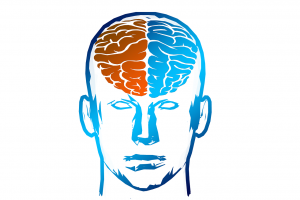Posted on March 16, 2018 by Jenny Cromack
What is Mental Health?
The World Health Organisation (WHO) defines mental health as:
“A state of well-being in which every individual realises his or her own potential, can cope with the normal stresses of life, can work productively and fruitfully, and is able to make a contribution to his or her community.”
Mental health affects how we think, how we feel about ourselves and others, how we act, and how we appraise events. Positive mental health is not just the absence of mental illnesses, but instead it is also tied to our physical health. The issue we have is that physical health concerns are often easily noticed whereas mental health is not visible and can be extremely debilitating.
Mental health problems can range from general anxiety and worries that we may experience in every day life. We all, at some point in our lives become down, stressed, or depressed. These feelings often pass, and some people can cope with these better than others. There is no shame in admitting being unable to cope and seeking extra support. The stigma attached to mental health, however, often restricts peoples willingness to seek extra help.
This blog is designed to look at what the causes of mental health may be, what you can do to recognise these and, most importantly, how you can help others who you think may be suffering from poor mental health.

Influential Factors
There are several factors that may influence mental health and the following is not an exhaustive list. Anything deemed stressful can influence our mental health.
- Life transitions: e.g., change in jobs, school to university, retirement, etc.
- Financial change: e.g., debts, mortgages, redundancy etc.
- Family issues: deaths, divorces, childbirth
- Physical illness or impairment
- Affective or thinking states: e.g., optimism, pessimism, self-belief etc.
- Lifestyle: e.g., diet, exercise, sleep etc.
- Social isolation: e.g., friend networks, family support, etc.
- Sense of control: e.g., feel out of control
- Ineffective or absent coping strategies
- Salient or frequent stressful events.
Things to Recognise
Several signs may indicate some mental health concerns in your staff, colleagues, friends, family etc. and the following are some of the common impacts any concerns may have on those around you (or yourself).
- Social anxiety,
- Lack of confidence,
- Social withdrawal,
- Difficulty interacting with others,
- Difficulty expressing appropriate emotion,
- Loss of concentration and communication.
Other specific things to look out for in others in a work or school situation may be as follows:
- Missing work/school/lectures,
- Not meeting work/assignment deadlines,
- Deterioration in work/school/university performance,
- Concern raised by colleagues/friends/peers
- Low mood, tearful, anxious, miserable,
- Paranoia,
- Detachment from others and their environment,
- Feeling hopeless, in despair, lonely,
- Suicidal thoughts, signs of self-harm,
- Incoherence in communication, frequent subject changes when conversing.
What Should You Do First
If you are concerned for someone’s mental health ask yourself the following questions:
- How much is what you are observing impacting their life and daily function?
- How long have they been feeling/demonstrating this?
- Has anyone else noticed it and expressed concern to you?
- Have they ever declared mental health issues in the past?
- Do they feel there is an issue?
- Are they happy for you to talk to anyone else about your concerns?
How Can You Help
You cannot solve the problem, offering direct help is often out of our scope (as we are not training psychologists or counsellor). We can offer general “support” but not specific interventions. You could do the following, however:
- Explain the limitations of your role to them.
- Explore any reluctance to accept help or seek support, and try address any concerns.
- Provide options: e.g., trained individuals, contact numbers for trained professionals or in-house services.
- Encourage self-referral.
Considering Confidentiality
We must always maintain our staff’s, friends’, and colleagues’ confidentiality. Before breaking confidentiality we should consider the following:
- Why are you thinking about doing it?
- Are there any immediate or significant risks to the individual?
- What implications could breaking confidentiality have?
- Are the individuals actions putting anyone else at immediate or significant risk of harm?
- What significant harm could occur the individual, yourself, others if you do not disclose information to relevant services?
General services to point out to anyone you feel concerned for:
- In-house services you may have.
- https://www.mind.org.uk/
- http://www.sane.org.uk/
- http://www.leedsmind.org.uk/

